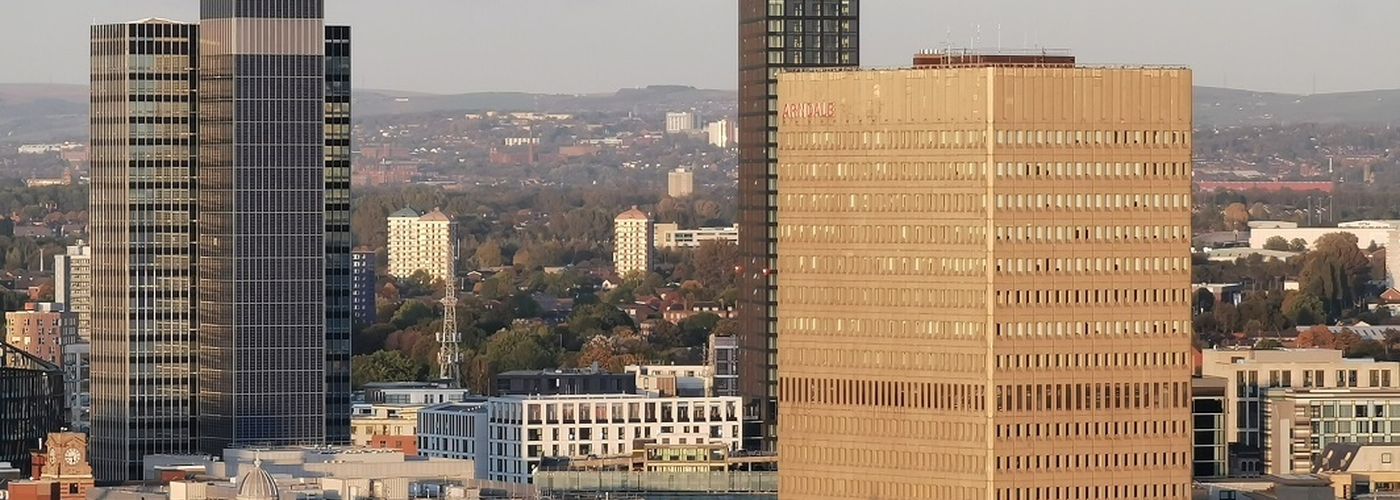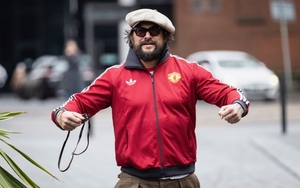Politics, social change, sport, arts, transport and...er...sewage: celebrating Manchester's achievements
It's time to take a moment to feel good about ourselves. The list below represents a snapshot of what the Greater Manchester area has pioneered - there are many more. If we've missed some please tell us which.
The extraordinary fecundity of achievement was set in stone as Manchester became the world’s first modern industrial city in the nineteenth century: the potent symbol of how urban society had changed. It led the world into the modern age, on the back of an incredible number of ‘firsts’.
This pioneering spirit then continued and still continues, underlining our region’s creativity and initiative.
Manchester has 25 Nobel prize-winners more than all but seven nations.
Here's our favourite quote about the city:
'Manchester is the place where people do things. Don't talk about what you are going to do, do it. That is the Manchester habit. And through the manifestation of this quality, the word Manchester has become a synonym for energy and freedom and the right to think and to do without shackles.' Judge Parry, 1912.
It seems fitting somehow.
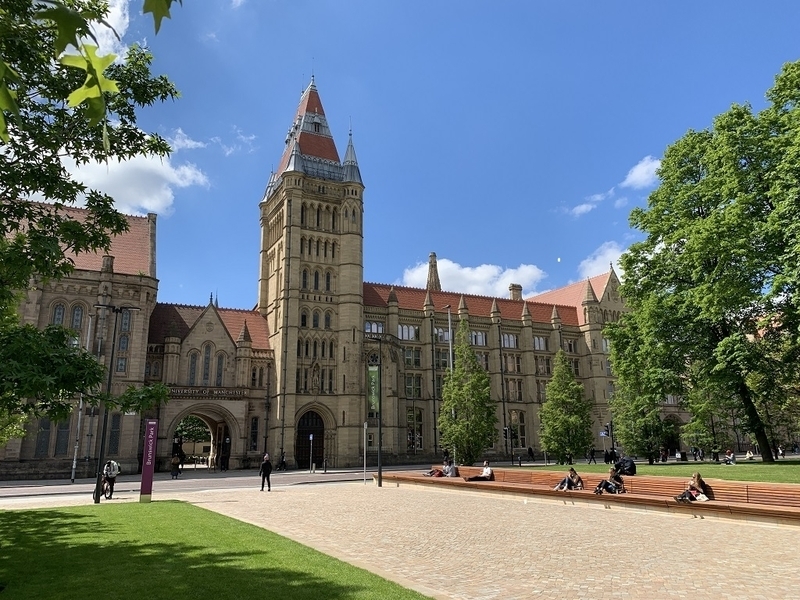
Politics, Religion and Society
The Anti-Corn Law League - This was the first modern political movement and began life in the 1830s. It employed full-time administrators, teams of public speakers, mail shots, lobbying and latest technology: the new telegraph. Its methods were the model for later political lobbying groups.
The Free Trade Movement/Manchester School - This grew out of the Anti-Corn Law League and resulted in Manchester being the only British city to get a philosophy named after it: The Manchester School. The leaders of the Manchester School believed that trade should be allowed to flourish without government interference - which too frequently was both nationalistic and aggressive. Twisted by Margaret Thatcher and Ronald Reagan into neo-liberalism in the 1980s, it underpins the globalised nature of trade in 2020 – Covid-19 aside.
Communism – Friedrich Engels, the best friend of Karl Marx, lived for 22 years on and off in Manchester working in his family business. What the young German saw (and wrote about) dramatically influenced The Communist Manifesto. Engels wrote: “It was in Manchester where I was hit in the face by the economic realities which in the historical narrative to date played either no role or were dismissed.
Vegetarianism – The movement began in 1809 in Salford Bible Christian Church, inspired by the sermons of the local preacher named, of all things, the Rev. William Cowherd. A vegetarian cookbook was published here by Martha Brotherton from 1812 and her husband, Joseph, was the first fully vegetarian MP.
Votes for women – Emmeline Pankhurst founded the Women’s Social and Political Union in 1903. This body eventually went millitant and was nick-named the Suffragettes. Earlier in 1867, the National Society for Women Suffrage was founded in Manchester by Lydia Becker.
First Female Bishop - On 26 January 2015 Church history was made in the UK when the Church of England ordained its first women bishop, Libby Lane, the former vicar of St Peter's Hale and St Elizabeth's Ashley, in Greater Manchester. She becomes Bishop of Stockport, Greater Manchester, and she is a Manchester United supported and married to a fellow C of E priest.
TUC – The first general meeting of the Trades Union Congress was held in 1868 in the Mechanic’s Institute, Princess Street.
Also read - The women who made Manchester
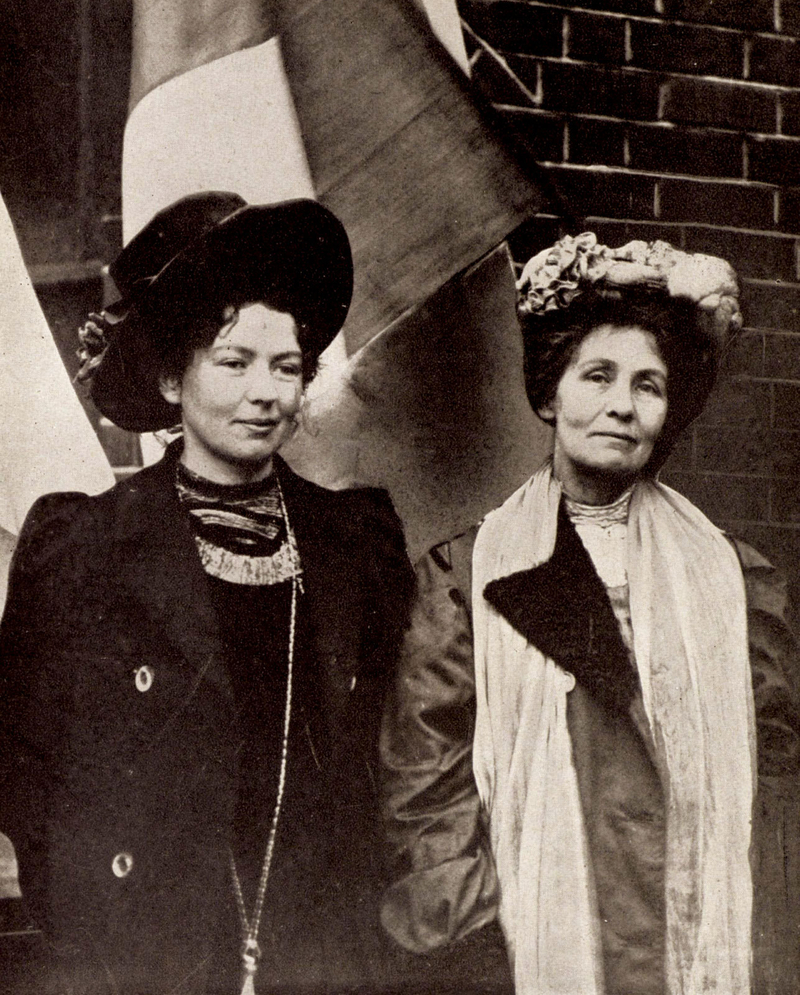
First civic anti-slave trade petition – Following a sermon in Manchester Cathedral in October 1787 by abolitionist Thomas Clarkson, the town’s anti-slave trade committee, led by Thomas Walker, organised a 10,000 strong petition to Parliament demanding its abolition. (We recently re-discovered Walker's lost gravestone. Read more here.)
Fifth Pan-African Congress – The October 1945 meeting in Chorlton-on-Medlock Town Hall was key to the independence of African nations from the colonial powers such as Britain. It was attended by future African leaders Kwame Nkrumah and Jomo Kenyatta. (Read more about it here)
Shakers – Ann Lee, founder of the Shaker religion, was born in Manchester in 1736. She emigrated to America in 1786, taking her visions with her. The strict religious sect is now chiefly known for their furniture design.
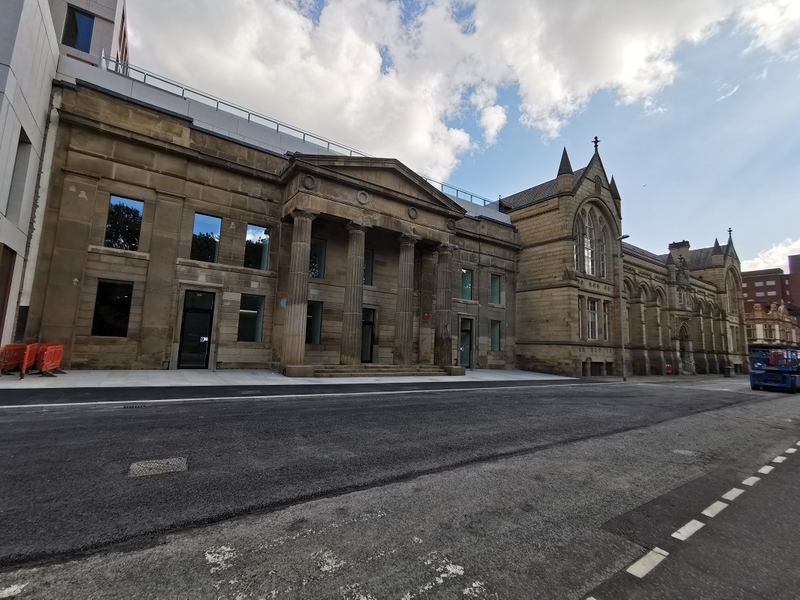
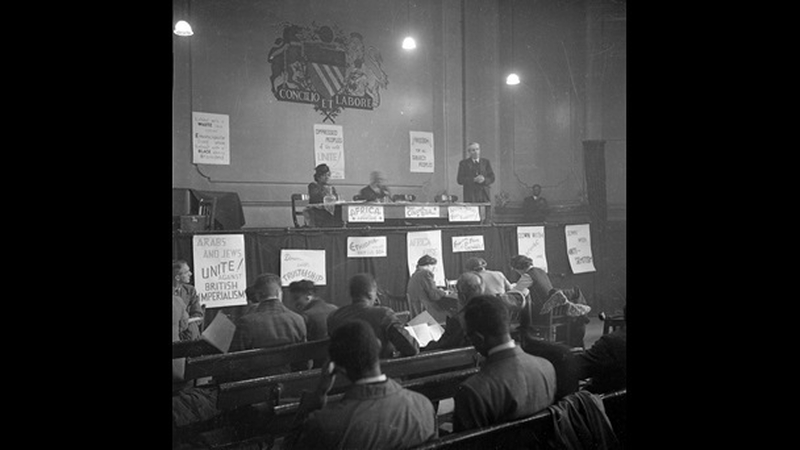
Science and Industry
Atomic theory, meteorology, colour blindness – John Dalton is a scientific colossus of Manchester. His atomic theory (1803), with its pioneering work on the constitution of elements, was the precursor of all modern chemistry, whilst his lectures on meteorology turned the study of weather into a science. He was also the first to describe colour blindness.
First Law of Thermodynamics – Law of physics concerning the mechanical equivalence of heat discovered by James Prescott Joule (1819-89): commemorated by the unit of energy the “joule”.
Precision engineering – Sir Joseph Whitworth (1803-87) was the father of precision engineering. His work finding true planes allowed him to gain accuracies in tool making up to 0.000001 inch. He was the first to develop a standard screw thread and first to design a mechanical street cleaner.
Cast iron beam – The introduction of cast iron beams strong enough to span large distances was the work of Eaton Hodgkinson and Sir William Fairbairn for bridge building, in particular the Britannia Tubular Bridge across the Menai Straits. They also began the large-scale use of plated wrought iron. Fairbairn (1789-1874), an engineering giant, was responsible for advances in boiler making and invention of the riveting machine.
Earth density – Monton born John Henry Poynting established the mean density of the earth in 1891. The Poynting Robertson Effect helps explain the effect of radiation from the sun.
Splitting the atom, the atomic nucleus - Ernest Rutherford, working at Manchester University, discovered the nucleus of atoms and later how to split the things in 1919. His assistant was Hans Geiger of the Geiger Counter fame.
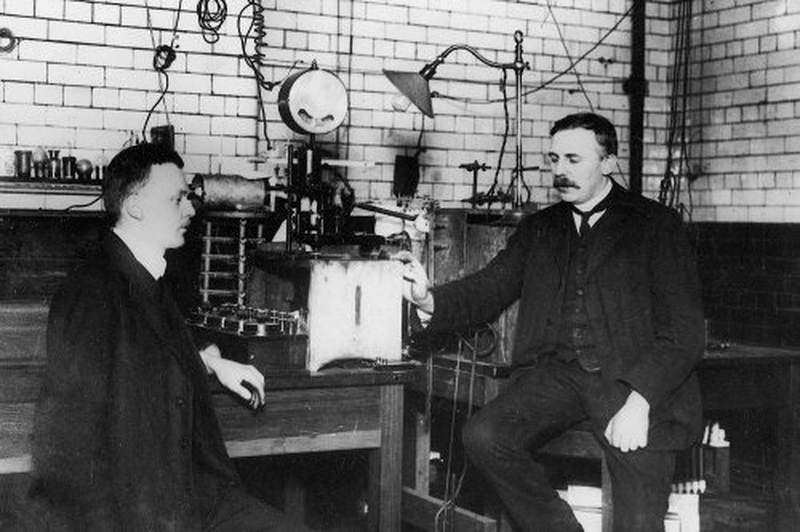
Bessemer process – It was at William Galloway’s foundry at Knott Mill, Manchester, in 1855 where Henry Bessemer perfected the mass production of steel through the removal of impurities from iron by oxidation.
Steam hammer – Invented in 1840 by James Nasmyth at his Patricroft factory.
Industrial estate – The first purpose-built industrial estate was Trafford Park in 1896.
Computers – The first computer with a stored programme and memory, nicknamed 'The Baby', was developed at Manchester University in 1948 by Professors Tom Kilburn and Fred Williams.
Obstetrics – Doctor Charles White pioneered new practices in obstetrics, including the use of fresh water and fresh air for women after giving birth.
Medical ethics – Dr Thomas Percival, in the late eighteenth century, founded the science of medical ethics.
Hypnotism – James Braid introduced the word ‘hypnotism’ to the world at the Athenaeum in Manchester in 1840s. This led from his studies into what had formerly been known as mesmerism.
Graphene - The Nobel Prize in Physics for 2010 was awarded to Andre Geim and Konstantin Novoselov at the University of Manchester ‘for groundbreaking experiments regarding the two-dimensional material graphene’.
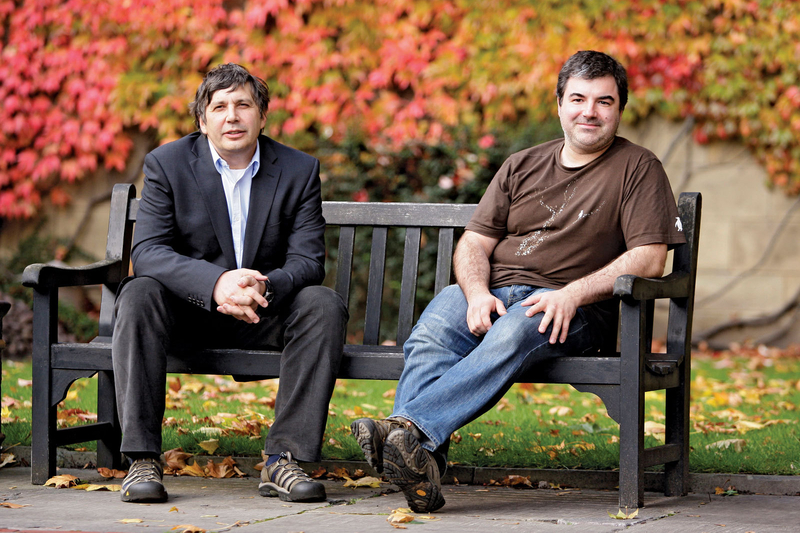
Transport
Modern industrial canal – In Britain, this was the Bridgewater Canal in 1761: a totally artificial waterway independent of natural rivers. This brought coal from The Delph to Manchester city centre.
Railway – The world’s first true railway system began operating from a purpose-built station on Liverpool Road in 1830. Stockton and Darlington had the first line but it was the success of the Liverpool and Manchester Railway that launched the railway revolution. It was the first passenger railway system too.
Submarine – The first mechanically powered submarine was launched in 1880 to the designs of Hulme curate, the Rev. George Garrett. He also invented an armour-plated mortarboard for academics under attack.
Swing aqueduct – The first and only swing aqueduct in the world is at Barton, west of the city. Built in 1893, it carries the Bridewater Canal over the Ship Canal together with 800 tons of water.
British plane and aviator – Local man, AV Roe, designed and flew the first totally British aeroplane in 1908. Roe pioneered the enclosed cockpit and single joystick. In 1928, one of his Avro Avians, made in Manchester, became the first plane to complete a solo flight to Australia.
Trans-Alantic flight – Former Manchester Central High School students, JW Alcock and AW Brown, were the first to fly the Atlantic Ocean non-stop in 1919.
First municipal airport – Manchester established the first municipal airport in 1929.
Trams – Modern trams were reintroduced on to UK streets in 1992 with the Metrolink service.
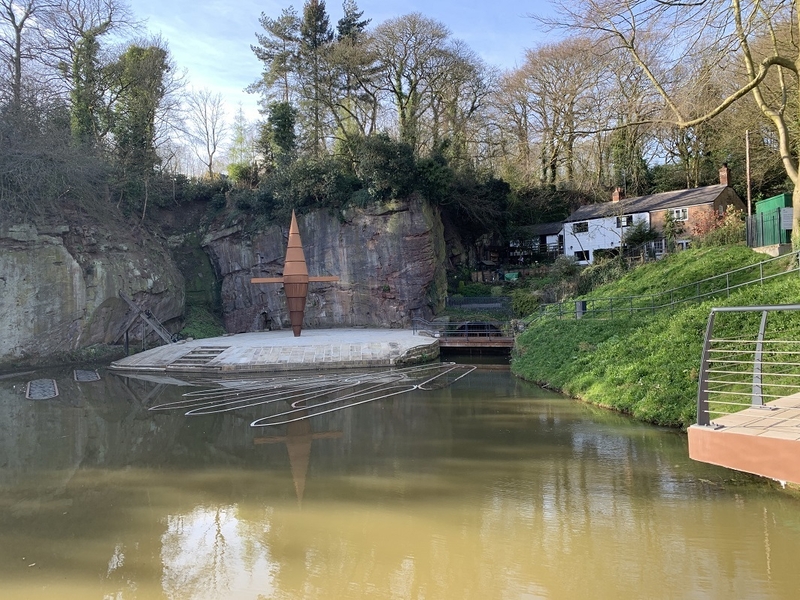
Arts
Professional, permanent orchestra – This was the Halle Orchestra, set up in 1858 by German Charles Halle who was later knighted for his work.
Repertory theatre – Ann Horniman began British repertory theatre in 1908 at the Gaiety, Peter Street.
Art Treasures Exhibition – Following the success of London’s Great Exhibition with science and industry, Manchester, in 1857, began a trend for international art exhibitions - with 16,000 works this remains the largest temporary art exhibition in history.
Top of the Pops – The now defunct TV show was first broadcast from Rusholme in 1964, headlined by The Rolling Stones and The Hollies.
Roget’s Thesaurus – Whilst first secretary of Manchester’s Portico Library, Peter Mark Roget began his helpmate for wordsmiths: the Thesaurus of English Words and Phrases.
Manchester International Festival – Manchester's main arts festival takes place every two years (it began in 2007) and was the first to only programme completely new and original works.
Sport
The Football League – The world’s first professional football league was set up in 1888 in the Royal Hotel, Piccadilly.
Rugby - According to legend, Salford’s William Webb Ellis picked up the ball at Rugby School and ran with it during a football match in 1823, thus creating the ‘rugby’ style of play. Some people think this is a made-up ‘origin myth’, but given the Rugby Union World Cup trophy is named after Webb-Ellis we’ll stick with it.
Compound cricket ball – It was Rochdale’s Hamlet Nicholson who invented the compound cricket ball in 1861, and a variant of the same design is still used in today’s game.
European Cup, treble – Manchester United was the first English football team to win the European Cup in 1968. In 1999 they became the first team to win the Holy Trinity – European Cup, FA Cup and League Championship – in one season.
Crowds – The only time that the crowd at a English club match (outside Wembley) has exceeded 84,000 was at Maine Road in 1934, when Manchester City played Stoke City in the FA Cup 6th round. The actual attendance was 84,569 and City won. Maine Road has now been demolished and City play at the Etihad Stadium.
Civic Achievement
Gas supply – Manchester Corporation Gas, the first in the country, was set up in 1818 at a cost of £40,000.
Municipal parks – Phillips Parks, Queens Park and Peel Park opened in 1846 to become the first municipal parks.
Water – Manchester led the way in providing the citizens of the new big cities with a supply of pure, fresh water when it opened its Longdendale Reservoirs in 1851.
Sewage – yep, achievement comes in many forms. A presentation at the Manchester’s Grand Hotel on 3 April 1914 marked the discovery of the activated sludge process, which was then first used practically at Davyhulme. It was a leap forward for sanitation globally. (Read more here.)
Municipal libraries – Salford Borough Library opened in 1850, followed in 1852 by Manchester’s which operated the first Children’s Library from 1862.
Free public library – The nation’s oldest free, public library opened as Chetham’s Library, off Long Millgate, in 1653.
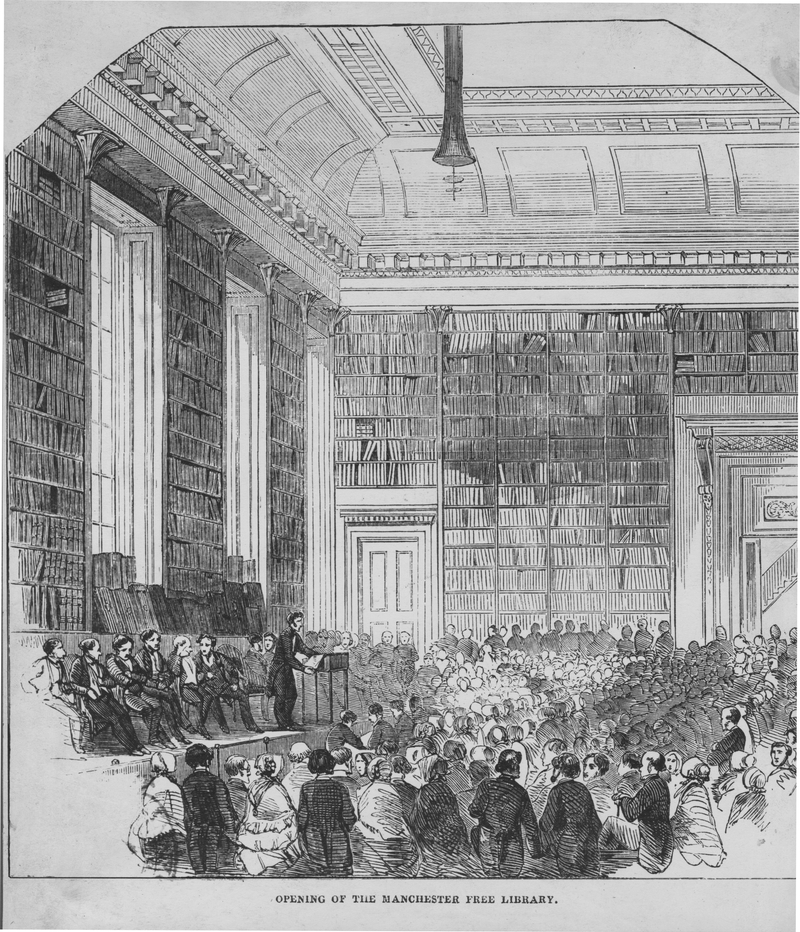
...And some extra
First casuality of English Civil War – This was Richard Perceval, linen weaver, shot on Market Street, 1642.
Bullfighter – Frank Evans from Salford was Britain’s first matador and has fought many times in Spain.
Marks & Spencer – Despite a market stall in Leeds, the first Marks & Spencer store opened in Manchester in 1894.
Rolls-Royce – In 1904, Frederick Royce met Charles Rolls at the Midland Hotel where they set up the famous company.
UFO landing pad – In the new Hulme Park, there is a UFO airport located on ley lines. Honest. Manchester likes to think ahead.
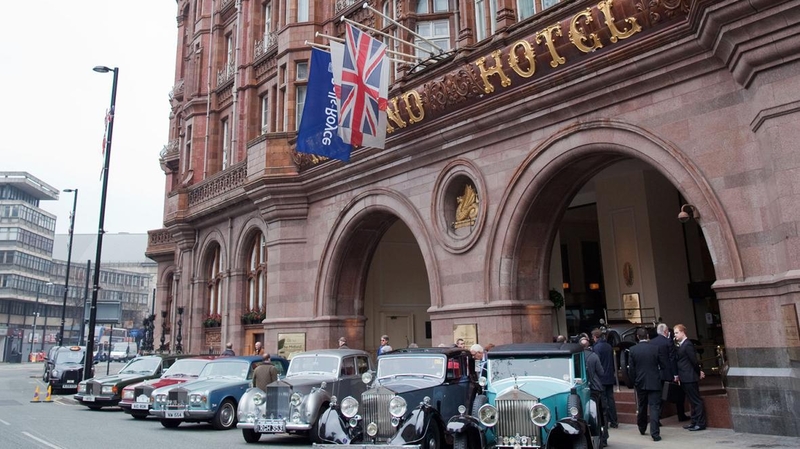
This list was put together by Jonathan Schofield and has been updated. Many of Jonathan's tours around the city directly touch on many of the 'firsts' and achievements on this page. You can find out more here.





